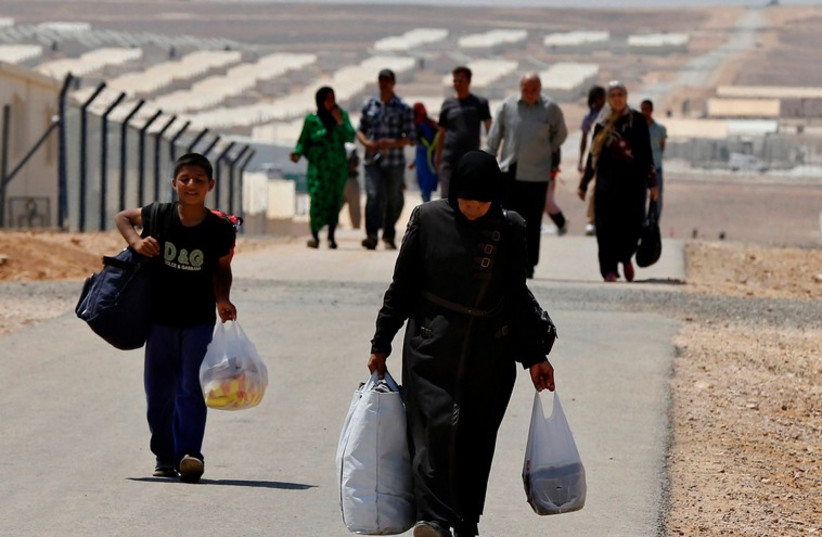Crisis looms as Jordan seeks UN cooperation for Syrian refugees’ return
More than 660,000 Syrian refugees currently in Jordan may be facing a looming humanitarian crisis, as the country has exceeded its capacity for hosting refugees and there has been a decline in international support for them, Jordanian Deputy Prime Minister and Foreign Minister Ayman Safadi told a senior United Nations official recently.
Meeting with UN Under-Secretary-General for Humanitarian Affairs and Emergency Relief Coordinator Martin Griffiths, Safadi stressed the importance of bolstering cooperation between Jordan and the UN on providing for the refugees’ needs.
He also said the future of the Syrian refugees lies in their own country, but that this “necessitates taking practical steps to create the environment necessary for their return.”
Why does a humanitarian crisis loom for the Syrian refugees in Jordan?
A survey published in May by the UN High Commissioner for Refugees found that there were 660,646 Syrian refugees registered in Jordan at the end of April this year. About 86% of the Syrian refugees in Jordan reported that they could not meet their own and their families’ basic requirements. Despite this, almost 97% had no intention of returning to their home country within the next 12 months.
Agyad Abu Zayad, a Syrian journalist based in Jordan, told The Media Line that in the absence of any definite date for the return of the refugees to Syria, humanitarian support needed to continue.
“Jordan, international NGOs, and governments need to ensure that health, education, and other basic needs of Syrian refugees must be met,” he said. “The cost of living has resulted in a rise in poverty, which is exacerbated by the absence of job opportunities.”
 Syrian refugees in Jordan, August 2014. (credit: REUTERS)
Syrian refugees in Jordan, August 2014. (credit: REUTERS)The World Food Program has been providing assistance to some 465,000 refugees in camps and host communities in Jordan, the vast majority of them Syrian refugees. It found that “the vulnerabilities of Syrian refugees and Jordanians have deepened.”
Last month, the European Union hosted its seventh annual conference in Brussels to pledge support for Syrians, both those suffering inside Syria and those who are refugees in host countries. At the conference, the members pledged €5.6 billion to support Syrians: €4.6 billion in 2023 and the remainder in 2024. The International Rescue Committee responded by saying that this was still “far from enough to cover the escalating level of needs in Syria and the region.”
Hadeel Abdel Aziz, the coordinator of the Himam Jordanian Civil Society coalition, attended the event and said the challenges being faced by the refugees and their host countries should not be belittled.
“Support is needed for essential services and protection since the return of refugees is not close,” she said.
Reem Alkharouf, a professor at Yarmouk University and an expert on refugee issues, told The Media Line that education and health would be the first victims of a reduction in donor support for refugees.
“Without new schools opening, Jordan has been running double shifts in schools to accommodate the needs of Syrian refugees. Even this will not be sufficient in the coming period,” Alkharouf said.
She said that a reduction in support would have a direct effect on the health and welfare of refugees, especially those most at risk.
“The net result of all this will be an increase in unemployment, and this will definitely cause an increase in the rate of crime,” she said.
Belgian Ambassador to Jordan Sege Dickschen called for international protection of Syrian refugees returning to their homeland.
“The return of refugees to Syria must be safe and voluntary. There must be safeguards and conditions, such as international monitoring in Syria to make sure that Syrian refugees return under safe conditions,” he said.





Comments are closed.